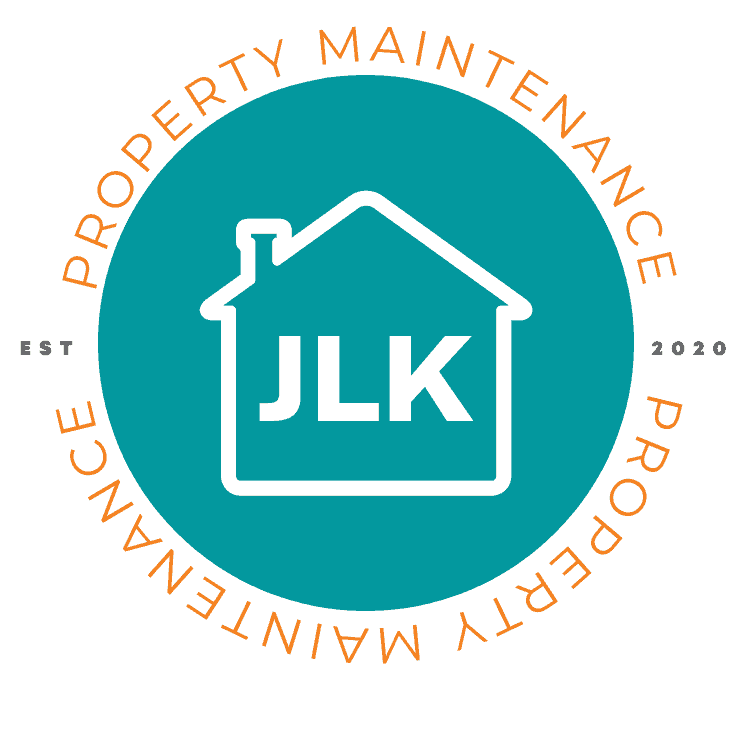First Time Buyer: Your Ultimate House Buying Guide
Introduction:
Welcome to The Complete Guide to First-Time Buyer Mortgages! This comprehensive handbook is designed to help you navigate the exciting journey of buying your first home. We’ll provide you with the essential information you need to understand first-time buyer mortgages, from assessing your needs and saving for a deposit to finding the right mortgage and making an offer.
Let’s get started on the path to homeownership together!
Part 1: Assessing Your Needs
Understanding Your Requirements and Priorities
When it comes to buying your first home, it’s important to assess your needs and establish your priorities. By taking the time to understand what you’re looking for, you’ll be better equipped to find a property that suits your lifestyle and budget. Let’s dive into the key considerations.
1. Create a Wish List:📃 🖊️
Begin by listing the features and characteristics you desire in a home. Consider factors such as the number of bedrooms, location, amenities, proximity to schools or transportation, and any specific requirements important to you or your family.
2. Divide into Essentials (things you NEED) and Desirables (things you WANT): 🤔
While it would be wonderful to find a property that checks off every item on your wish list, it’s essential to recognise that compromises may be necessary. Separate your list into essential and desirable features to help prioritise your needs.
3. Establish a Budget: 💷💰
Understanding your financial capabilities is crucial. Start by determining your budget based on your savings, income, and any potential financial assistance available. This will give you a clear idea of the price range you can afford and help narrow down your search.
4. Consider Future Plans: 👶🏢
Think about your long-term plans. Are you planning to expand your family? Will you require a home office? Considering these factors can help ensure that the property you choose meets your needs both now and in the future.
5. Research Neighbourhoods: 🏡🏠🏡
Explore different neighbourhoods that align with your lifestyle and preferences. Look into local amenities, schools, transportation options, and community vibes. This will help you narrow down your search to areas that best suit your needs.
6. Seek Professional Advice: 🧑🏫
Talk to a local estate agent or mortgage adviser who specialises in first-time buyer mortgages can be incredibly beneficial. They can provide valuable insights, answer your questions, and guide you through the process based on their expertise. Does their webpage have a good First-Time-Buyer section or guide?
Remember, this is an exciting time, and it’s normal to feel a mix of emotions. Stay positive, keep an open mind, and trust that the perfect home for you is out there!
Conclusion:
Assessing your needs is a crucial first step in the journey towards homeownership. By understanding your requirements, priorities, and budget, you can embark on your search for the perfect property with confidence. In the next section, we’ll delve into the world of mortgages, helping you understand the different options available and how to find the right one for your unique situation. Get ready to explore the possibilities and take one step closer to turning your homeownership dream into a reality!

Part 2: Saving For A Deposit
Building Your Financial Foundation
Saving up for a deposit is a crucial step in your journey to becoming a homeowner. It might seem like a daunting task, but with careful planning and determination, you can achieve your goal.
In this section, we will guide you through the process of saving for a deposit and offer helpful tips to make it a little easier.
• Setting a Savings Target 🎯
To begin, it’s important to determine how much you need to save for a deposit. While the specific amount varies depending on your financial circumstances and the property’s value, a general rule of thumb is to save between 10% and 20% (however 5% and 0% are available under certain circumstances) of the property’s asking price. The larger the deposit, the better your chances of securing a favourable mortgage rate.
Calculate the amount you can realistically set aside each month and set a savings target. Consider your income, expenses, and other financial obligations. It’s crucial to be realistic and ensure that your savings goals align with your budget.
• Creating a Budget 💰📃
A budget is a powerful tool that can help you stay on track with your savings. Start by assessing your income and expenses. Identify areas where you can cut back on non-essential spending and allocate those savings towards your deposit.
Track your spending diligently and consider using budgeting apps or spreadsheets to stay organized. This will give you a clear overview of your financial situation and help you identify areas where you can make adjustments.
• Maximizing Your Savings 🏦
Saving for a deposit requires discipline and commitment.
Here are some strategies to maximize your savings:
1. Reduce Non-Essential Expenses: 🚫
Take a close look at your monthly expenditures and identify areas where you can make cuts. Consider cutting back on dining out, entertainment expenses, or unnecessary subscriptions. Small sacrifices can add up to significant savings over time.
2. Increase Your Income: 💰
Explore opportunities to boost your income. This could involve taking on a part-time job, freelancing, or side-hustle your hobbies and skills. The additional income can go directly into your savings account, accelerating your progress.
3. Automate Your Savings: 💱
Set up automatic transfers from your bank account to your savings account on your payday. This way, you won’t even have to think about it, and the money will accumulate without temptation.
4. Open a Dedicated Savings Account: 💳
Consider opening a separate savings account specifically for your deposit. Look for accounts that offer competitive interest rates, as this can help your savings grow faster.
Remember, saving for a deposit is a journey, and it requires patience and perseverance. Celebrate small milestones along the way to stay motivated and focused on your ultimate goal of homeownership.

Section 3: Understanding Mortgages
Finding the Perfect Fit
Understanding the world of mortgages is essential for first-time buyers like you. With various options available, it’s important to explore and comprehend the different types of mortgages to find the perfect fit for your financial situation. In this section, we’ll break down the key aspects of mortgages and help you navigate through the process.
What is a Mortgage?
A mortgage is a loan that enables you to purchase a property. It is typically offered by banks and building societies and is secured against the property itself. The mortgage allows you to borrow a substantial amount of money, which you’ll repay over an agreed period, usually in monthly instalments.
Key Mortgage Terminology
Before delving into specific mortgage types, let’s familiarize ourselves with some essential mortgage terminology:
• Principal: The amount of money borrowed from the lender to purchase the property.
• Interest Rate: The percentage of the loan amount charged by the lender as interest. It determines the cost of borrowing.
• Deposit: The upfront payment you contribute towards the property’s purchase price. A larger deposit generally leads to better mortgage deals.
• Term: The length of time over which you’ll repay the mortgage, usually stated in years.
• Repayment Mortgage: The most common type of mortgage, where your monthly payments contribute to both repaying the loan and covering the interest.
• Interest-Only Mortgage: A mortgage where your monthly payments only cover the interest, and the principal remains unchanged. You’ll need a separate investment plan to repay the principal at the end of the term.
Types of Mortgages for First-Time Buyers
Now, let’s explore the different mortgage options available to first-time buyers:
1. Fixed-Rate Mortgage:
With a fixed-rate mortgage, the interest rate remains the same for an agreed period, typically two to five years. This provides stability and predictability, allowing you to budget your repayments accurately.
2. Variable-Rate Mortgage:
A variable-rate mortgage comes with an interest rate that can fluctuate over time. It is usually influenced by the base rate set by the Bank of England. While the rate can go up or down, it offers flexibility and the potential for lower payments in certain economic conditions.
3. Shared Ownership:
Shared ownership allows you to purchase a share of a property (typically between 25% and 75%) and pay rent on the remaining portion. This option is ideal if you can’t afford to buy a property outright.
4. Guarantor Mortgages:
If you’re struggling to secure a mortgage due to a limited deposit or lower income, a guarantor mortgage might be an option. In this arrangement, a family member or close relative guarantees your mortgage repayments if you’re unable to meet them.
Finding the Right Mortgage
Navigating the mortgage market can be overwhelming, but you don’t have to do it alone. Consider seeking advice from a mortgage specialist or independent financial advisor who can guide you through the process and help you find the best mortgage deal tailored to your needs.
Remember to assess your financial capabilities, evaluate your long-term plans, and consider factors such as interest rates, fees, and flexibility when choosing a mortgage. By understanding your options and seeking professional advice, you can make an informed decision that sets you on the path to homeownership.

Section 4: Finding Your Dream Home
Making Confident Choices
Now that you have a good understanding of mortgages, it’s time to embark on the exciting journey of finding your dream home. This section will guide you through the process, from defining your search criteria to making confident choices when selecting a property.
Defining Your Search Criteria
Before you start scouring the housing market, take some time to define your search criteria. Consider the following factors:
• Location: Think about the areas that align with your lifestyle, work, and social needs. Research local amenities, transportation options, and proximity to schools or medical centers.
• Property Type: Determine the type of property that suits your preferences and future plans. Whether it’s a house, apartment, or townhouse, understanding your desired property type will narrow down your search.
• Size and Layout: Consider the number of bedrooms and bathrooms you require, as well as the overall square footage that would comfortably accommodate your lifestyle.
• Budget: Assess your financial situation and establish a budget for your property purchase. Remember to factor in additional costs like legal fees, surveys, and potential renovations.
• Must-Have Features: Make a list of essential features you’re looking for in a property, such as a garden, parking space, or a specific layout. Differentiate between must-haves and nice-to-haves to help prioritize your search.
Searching for Properties
With your search criteria in mind, it’s time to start looking for properties. Here are some effective strategies:
• Online Portals: Utilise popular property websites (Rightmove, Primelocation and Zoopla etc) and apps to search for available properties in your desired location. These platforms often allow you to filter your search based on criteria such as price range, property type, and number of bedrooms.
• Estate Agents: Reach out to local estate agents who specialise in the areas you’re interested in. They have access to a wide range of properties and can help you find suitable options based on your preferences.
• Property Alerts: Sign up for property alerts with local estate agents. This way, you’ll receive notifications when new properties matching your criteria become available.
Viewing Properties
Once you’ve shortlisted potential properties, it’s time to schedule viewings. Here’s how to make the most of your property viewings:
1. Prepare Questions: 🙋♂️
Come prepared with a list of questions to ask the estate agent or property owner during the viewing. This will help you gather all the necessary information and address any concerns.
2. Take Notes: 🖊️📃
Take notes or photos during the viewing to help you remember the key features, pros, and cons of each property.
3. Look Beyond Aesthetics: 👀
Don’t be swayed solely by the visual appeal of a property. Check the condition of windows, heating systems, and inspect walls and floors for any signs of damage or maintenance issues.
4. Consider Future Potential: 🔮
Imagine how the property could meet your future needs. Is there potential for expansion or renovation if your circumstances change?
Making an Informed Decision
After viewing multiple properties, it’s time to make an informed decision. Consider the following factors:
• Affordability: Assess whether the property fits within your budget and won’t stretch your finances to uncomfortable limits. Remember to factor in ongoing expenses such as maintenance, insurance, and potential future interest rate changes.
• Compatibility: Evaluate how well the property aligns with your lifestyle, needs, and future plans. Consider the proximity to essential amenities, schools, and transportation options.
• Potential Resale Value: While it’s your first home, it’s still important to consider the potential resale value of the property. Look at the local market trends and consult with professionals to gauge the property’s long-term value.
• Trust Your Instincts: Listen to your gut feeling about a property. If it feels like the right fit and ticks most of your boxes, it may be worth pursuing.
Remember, finding your dream home may take time and patience. Don’t rush the process and be open to revisiting properties if needed. Trust that the right property will come along when the time is right.

Section 5: Securing Your Mortgage
Navigating the Mortgage Application Process
Congratulations on finding your dream home!
Now it’s time to navigate the mortgage application process to secure the funds you need. This section will guide you through the steps involved in obtaining a mortgage and provide tips to enhance your chances of approval.
Understanding the Mortgage Application Process
1. Gather the Necessary Documents:
To apply for a mortgage, you’ll need to provide various documents, including identification, proof of income, bank statements, and details of your financial commitments. Gather these documents in advance to streamline the application process.
2. Choose the Right Lender:
Research and compare different lenders to find the one that offers favorable mortgage terms, interest rates, and repayment options. Consider seeking advice from a mortgage specialist who can guide you through the selection process.
3. Get a Mortgage Agreement in Principle (DIP) from your Mortgage Adviser:
Before you start house hunting, obtaining an Agreement in Principle (AIP) can be beneficial. It’s a conditional offer from a lender stating the amount they’re likely to lend you based on an initial assessment. An AIP can make you a more attractive buyer to sellers and estate agents.
4. Complete the Mortgage Application:
Once you’ve found the property you wish to purchase, ask your Mortgage Adviser to complete the mortgage application with your chosen lender. Provide accurate and detailed information, and double-check everything before submitting.
Tips for a Successful Mortgage Application
• Maintain a Good Credit Score: Lenders consider your credit score when assessing your mortgage application. Make sure to pay bills on time, keep credit card balances low, and avoid taking on new debt leading up to the application.
• Manage Your Finances: Lenders want assurance that you can afford the mortgage repayments. Maintain a stable income, manage your expenses, and reduce unnecessary debts to demonstrate your financial responsibility.
• Avoid Major Financial Changes: During the mortgage application process, it’s advisable to avoid significant financial changes such as changing jobs, taking on new loans, or making large purchases. These changes can raise concerns for lenders.
• Seek Professional Advice: Consider working with a mortgage adviser who can provide expert guidance tailored to your circumstances. They can help you navigate the complexities of the mortgage application process and increase your chances of approval.
• Be Prepared for Affordability Assessments: Lenders conduct affordability assessments to determine whether you can comfortably afford the mortgage repayments. Be ready to provide details of your income, expenses, and other financial commitments.
• Provide Accurate Information: It’s crucial to be honest and accurate when providing information to lenders. Inaccurate or incomplete information can lead to delays or even rejection of your application.
• Review and Understand the Mortgage Offer: Once your application is approved, the lender will provide a mortgage offer. Review the terms and conditions carefully, including interest rates, repayment options, and any additional fees or charges.
• Seek Legal Advice: Before accepting the mortgage offer, consider consulting a solicitor or conveyancer to review the legal aspects of the agreement. They can ensure that you understand the terms and protect your interests.
Remember, each mortgage application is unique, and the approval process can vary. Be patient and proactive, maintaining open communication with your lender throughout the process.

Section 6: Assessing the Property
Ensuring the Condition and Value of Your Future Home
Before finalizing your home purchase, it’s crucial to assess the property’s condition to ensure there are no hidden issues and that it aligns with your expectations.
This section will guide you through the process of conducting surveys and assessments, providing peace of mind and protecting your investment.
The Importance of Surveys and Assessments
1. Arrange a Property Survey:
A property survey is a comprehensive inspection conducted by a qualified surveyor. It helps identify any structural problems, hidden defects, or potential issues that may affect the property’s value or your safety. There are different types of surveys available, ranging from basic to more detailed assessments. Discuss with your solicitor or estate agent to determine the most suitable survey for your needs.
2. Review the Survey Report:
Once the survey is completed, you’ll receive a detailed report outlining the findings. Carefully review the report with your solicitor or surveyor to understand the implications of any identified issues. This information can be used to negotiate the purchase price or request repairs from the seller.
3. Consider Additional Assessments:
Depending on the property’s characteristics and location, you may want to consider additional assessments. These can include specialized inspections for pests, drainage, electrical systems, or energy efficiency. Assessments provide a more comprehensive understanding of the property’s condition and potential costs for repairs or improvements.
4. Consult with Professionals:
Engage with professionals such as solicitors, surveyors, and experts in specific fields to gain insights and advice throughout the assessment process. They can help interpret the survey findings, address any concerns, and provide guidance on how to proceed.
5. Budget for Repairs or Renovations:
If the survey report highlights any necessary repairs or renovations, consider the associated costs and factor them into your budget. This will help you determine if the property remains financially viable and ensure you’re prepared for any additional expenses after the purchase.
6. Negotiate with the Seller:
If significant issues are identified during the assessment process, you may have grounds to negotiate with the seller. This can involve requesting repairs, a reduction in the purchase price, or a contribution toward necessary improvements. Your solicitor can guide you through the negotiation process and advocate on your behalf.
7. Plan for Future Maintenance:
Assessments can provide insights into the property’s long-term maintenance needs. Use this information to create a plan for ongoing maintenance and budgeting to ensure your new home remains in good condition.
Remember, assessments are essential to protect your interests and make informed decisions about your purchase. Take the time to thoroughly review the reports, seek professional advice, and address any concerns before proceeding.

Section 7: Financial Considerations
Understanding the Costs Beyond the Purchase Price
When buying your first home, it’s crucial to understand the financial aspects beyond the purchase price.
This section will provide insights into various costs associated with homeownership, including stamp duty, insurance, and additional expenses. By considering these factors, you can plan your budget effectively and avoid any surprises down the line.
1. Stamp Duty:
Stamp duty is a tax imposed on property purchases above a certain threshold. The amount you pay depends on the property’s value and whether you’re a first-time buyer. Use an online stamp duty calculator to determine the exact amount you’ll need to budget for and factor it into your overall costs.
2. Legal Fees:
Engaging a solicitor or conveyancer is essential for the legal aspects of the home-buying process. They handle tasks such as property searches, contract review, and the transfer of ownership. Ensure you obtain quotes from different solicitors or conveyancers to compare fees and find a reliable professional within your budget.
3. Mortgage Fees:
When securing a mortgage, there may be various fees involved, such as arrangement fees, valuation fees, and broker fees. These costs can vary depending on the lender and mortgage product. Discuss these fees with your mortgage advisor and factor them into your budget.
4. Insurance:
Protecting your investment and belongings is crucial. Consider the following types of insurance:
- Buildings Insurance: Lenders typically require buildings insurance to protect against damage or loss to the structure of the property. Shop around for competitive quotes and ensure the policy covers your needs.
- Contents Insurance: Contents insurance covers your personal belongings, such as furniture, appliances, and valuables, against theft, damage, or loss. Assess the value of your belongings and obtain quotes to find suitable coverage.
- Life Insurance: Although not mandatory, life insurance provides financial security to your loved ones in case of unforeseen circumstances. If you have dependents or joint mortgage holders, it’s worth considering a policy that would pay off the mortgage in the event of your death.
5. Moving Costs:
Don’t forget to budget for the expenses associated with moving to your new home. This can include hiring a removals company, packing materials, and redirecting mail. Obtain quotes from different removal companies and plan ahead to ensure a smooth transition.
6. Furnishing and Decorating:
Factor in the costs of furnishing and decorating your new home. This may include purchasing furniture, appliances, and decor items. Consider buying items gradually to spread the cost and prioritize essential items first.
7. Ongoing Maintenance and Repairs:
Homeownership comes with ongoing maintenance and repair costs. Set aside funds for routine maintenance tasks and unforeseen repairs that may arise over time. Regularly review your budget to ensure you can comfortably handle these expenses.
By considering these financial aspects and factoring them into your budget, you’ll have a clearer understanding of the overall costs of purchasing and maintaining your first home.
In the next section, we’ll delve into the final steps of the home-buying process, including exchanging contracts, completion, and settling into your new home.

Section 8: Final Steps & Settling In
Making Your Dream Home a Reality
Congratulations! You’ve made it to the final steps of the home-buying journey.
In this section, we’ll walk you through the crucial steps of exchanging contracts, completing the purchase, and settling into your new home.
With careful planning and organisation, you’ll be able to transition smoothly and start enjoying your dream home.
1. Exchanging Contracts:
Once you and the seller have agreed on the purchase price and terms, your solicitor will handle the exchange of contracts. This is a significant milestone as it legally binds you and the seller to the transaction. Your solicitor will guide you through the process and ensure all necessary documents and funds are in order.
2. Completion:
The completion date is when the remaining funds are transferred to the seller, and you become the legal owner of the property. This date is usually agreed upon during the exchange of contracts. Your solicitor will handle the final financial transactions, including paying the outstanding balance and any applicable fees. Once the completion process is complete, the keys to your new home will be released, and you can officially move in.
3. Moving In:
Moving day is an exciting time but can also be a bit overwhelming. Here are some tips to make the process smoother:
- Plan Ahead:
Create a moving checklist and schedule your move well in advance. Notify utility providers, redirect your mail, and arrange for any necessary services to be connected in your new home. - Packing and Unpacking:
Start packing early, decluttering and organising your belongings. Label boxes clearly to make unpacking easier. Consider enlisting the help of friends, family, or professional movers to assist with the heavy lifting. - Settling In:
Take some time to familiarise yourself with your new surroundings. Locate essential amenities such as shops, doctors, and public transportation. Introduce yourself to neighbours and explore the neighbourhood to make it feel like home.
4. Home Improvements:
You may have plans to personalise and improve your new home. Whether it’s painting the walls, adding new fixtures, or renovating certain areas, take your time to prioritise and plan these projects. It’s advisable to set a budget and tackle improvements gradually to manage costs.
5. Enjoying Your New Home:
Now that you’ve settled into your new home, take the time to savour the experience. Host a housewarming party, invite friends and family over, and create cherished memories in your new surroundings. Explore the local community, join local groups or clubs, and embrace the opportunities that come with your new neighbourhood.
Remember, homeownership is a long-term commitment, and it’s important to stay on top of regular maintenance, mortgage payments, and budgeting. Should you encounter any challenges or need further guidance, reach out to professionals such as mortgage advisors, solicitors, or local support networks.
We hope this guide has provided you with valuable insights and guidance on your journey as a first-time buyer. Owning your dream home is an exciting accomplishment, and we wish you a joyful and fulfilling experience in your new abode.
Why Stamford Home Finance?
- Raising the standards of financial advice
- Friendly, personable advice
- Making financial advice accessible to all
- Trusted & stress-free financial advice








As seen in:


















